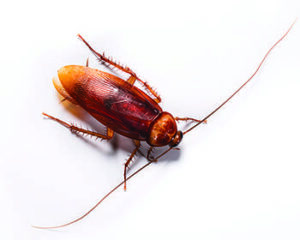Checking Out Various Bug Control Techniques to Accomplish Long-Term Success in Handling and Stopping Invasions in Residential Areas
Reliable insect control in residential locations demands a multifaceted approach that balances immediate results with long-term sustainability. What might these innovations involve, and just how can they change our understanding of pest control?
Recognizing Pest Control Methods
Although bugs have actually existed alongside human beings for centuries, the methods used to regulate them have actually advanced significantly with time. Recognizing these methods is crucial for successfully handling and avoiding infestations in household locations. Bug control techniques can be generally categorized right into three primary approaches: cultural, mechanical, and chemical.
Cultural approaches concentrate on modifying the setting to lower parasite attraction and breeding. This includes appropriate hygiene, crop turning, and environment adjustment, which can substantially lower pest populaces. Mechanical control includes physical obstacles and traps to take care of insects straight, such as displays, vacuum cleaners, and sticky catches. This technique is often preferred for its safe nature and immediate results.
Chemical control continues to be one of the most extensively utilized approaches, entailing the application of pesticides to eliminate pests. Integrated Parasite Management (IPM) integrates these approaches to produce an all natural method, advertising lasting pest prevention and very little harm to helpful microorganisms.
Eco-Friendly Pest Control Solutions
How can house owners effectively handle bug issues while decreasing their ecological influence? Environment-friendly pest control options offer a sustainable option to traditional approaches, focusing on the wellness of both locals and the bordering community. These solutions frequently utilize all-natural active ingredients and techniques that interrupt insect behavior without introducing unsafe chemicals right into the atmosphere.
One efficient strategy is using advantageous pests, such as ladybugs and lacewings, which exploit common insects like aphids and mites. Additionally, diatomaceous earth, a natural powder made from fossilized algae, can be sprinkled in locations where bugs are prevalent, working as a desiccant that damages pests while staying risk-free for human beings and pet dogs.
Additionally, carrying out preventative actions is crucial. roach control near me. Homeowners can make certain proper sanitation by sealing access points, keeping clean space, and managing waste successfully. Planting pest-repellent natural herbs, such as mint and basil, can also deter undesirable site visitors
Inevitably, environment-friendly parasite control remedies equip home owners to address invasions properly, promoting a more secure living setting while advertising environmental equilibrium. By accepting these approaches, individuals can contribute to a much healthier planet while efficiently handling pest-related problems.
Chemical Insect Control Options
While environment-friendly options are increasingly prominent, there are scenarios where chemical parasite control options may be essential for effective management of serious problems. Chemical controls, including insecticides, fungicides, and herbicides, are often used to swiftly minimize parasite populations and alleviate damages to homes and yards.
These products can be classified right into two main groups: artificial chemicals and all-natural chemicals. Synthetic chemicals, such as pyrethroids and neonicotinoids, are engineered to target particular pests, providing fast knockdown effects. Conversely, natural pesticides, stemmed from plant or mineral sources, might supply an extra ecologically friendly option while still delivering effective outcomes.
Before using chemical parasite control, it is essential to perform a detailed evaluation of the infestation and recognize the details insect entailed. This makes sure that the selected chemical is both effective and ideal. Furthermore, homeowners need to stick to safety standards, including appropriate application techniques and personal protective tools, to reduce wellness risks and environmental influence.
Integrated Insect Monitoring Strategies

Organic control includes the usage of all-natural killers or bloodsuckers to take care of parasite populations. For example, introducing ladybugs can aid control aphid infestations. Cultural practices, such as plant turning, cleanliness, and environment adjustment, goal to make settings less for pest survival and reproduction. Physical controls, like catches or barriers, can stop insects from getting in homes or harmful plants.
Surveillance more information and assessment are crucial parts of IPM, permitting prompt treatments based on pest population thresholds. By focusing on safety nets and using a mix of tactics, IPM not only addresses existing infestations but additionally fosters long-lasting parasite monitoring services that secure both human wellness and the environment. This extensive strategy is necessary for sustainable bug control in residential locations.
Emerging Technologies in Parasite Control
The development of emerging innovations in parasite control is reinventing the means we manage pest populations, offering innovative remedies that improve effectiveness and effectiveness. Advancements in accuracy farming, for instance, utilize data analytics and sensor innovations to keep an eye on parasite activity and ecological conditions, enabling targeted treatments that reduce chemical usage.
Furthermore, drones equipped with imaging modern technology are being used to evaluate huge locations for problems, giving real-time information that aids in timely decision-making. Moreover, biotechnology is playing a critical duty, with the advancement of genetically customized organisms (GMOs) designed to reduce parasite populaces while maintaining useful types.

Last but not least, clever traps and keeping an eye on gadgets geared up with IoT abilities enable property owners and bug control professionals to obtain immediate notifies regarding pest activity, facilitating punctual action. Jointly, these emerging modern technologies not just improve insect management results yet additionally add to ecological sustainability by minimizing dependence on typical chemical therapies.

Final Thought
To conclude, reliable insect control demands a multifaceted technique that includes cultural, mechanical, and chemical methods. Stressing environment-friendly solutions and Integrated Bug Management you could look here can bring about sustainable practices that not just alleviate invasions but additionally enhance the eco-friendly balance within houses. By accepting innovative technologies and adopting precautionary measures, house owners can promote much healthier atmospheres while reducing reliance on hazardous chemicals. The assimilation of informative post these methods is crucial for achieving long-term success in pest management.